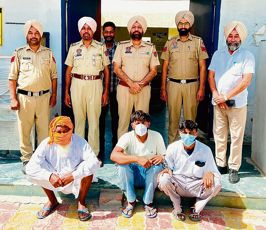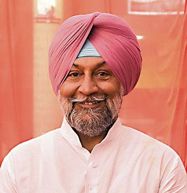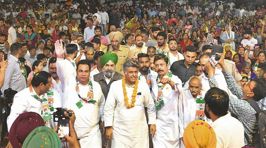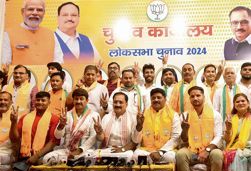
THINGS are certainly going downhill when the media itself becomes the news. The latest instance comes from Karnataka. Throw aside the linguistic kid gloves and what emerges is that the Karnataka Assembly Speaker sentenced two journalists to prison after adjudging that their articles against two fellow MLAs were scurrilous. A few weeks ago, an economic intelligence agency had raided a TV channel consistently critical of the Central Government on an accusation that hangs by a thin thread and did not merit the disproportional response. In India’s Maoist zone, journalists are sandwiched between security forces and insurgents. But none of it has happened overnight.
In India, muzzling of the media has been haphazard and fitful. The impact was largely borne by people without a banner and connections. The censoring has not been limited to news but has extended to inconvenient documentaries and books. Otherwise those lamenting India being downgraded in the World Press Freedom Index may examine why was the country at a low position of 133 during the supposedly liberal regimes.
If the fall by three slots reflects the animus generated by the Modi government’s reordering of social priorities, the sentencing by the Karnataka Assembly Speaker opens up an entirely new but avoidable chapter in the relationship between two pillars of the state. The right to try and sentence journalists for defamation vests entirely with courts after a fair trial. Implied in this function is the assumption that an impartial and trained judge hears both sides and adjudicates in accordance with the law. The MLAs were neither disinterested parties nor were they trained officers of the court. What the Karnataka duo did was bad journalism. As has been the case with lynching - instance justice being meted out on the streets - the remedy lay elsewhere and not in taking action under privileges that are not even codified. If the Assembly does not revoke its sentencing, it would be guilty of having contributed to the shrinking of critical faculties in public space. It would also lend itself to the notion that India reserves a heavy hand for those inclined to question the policies and politics of the government.



























